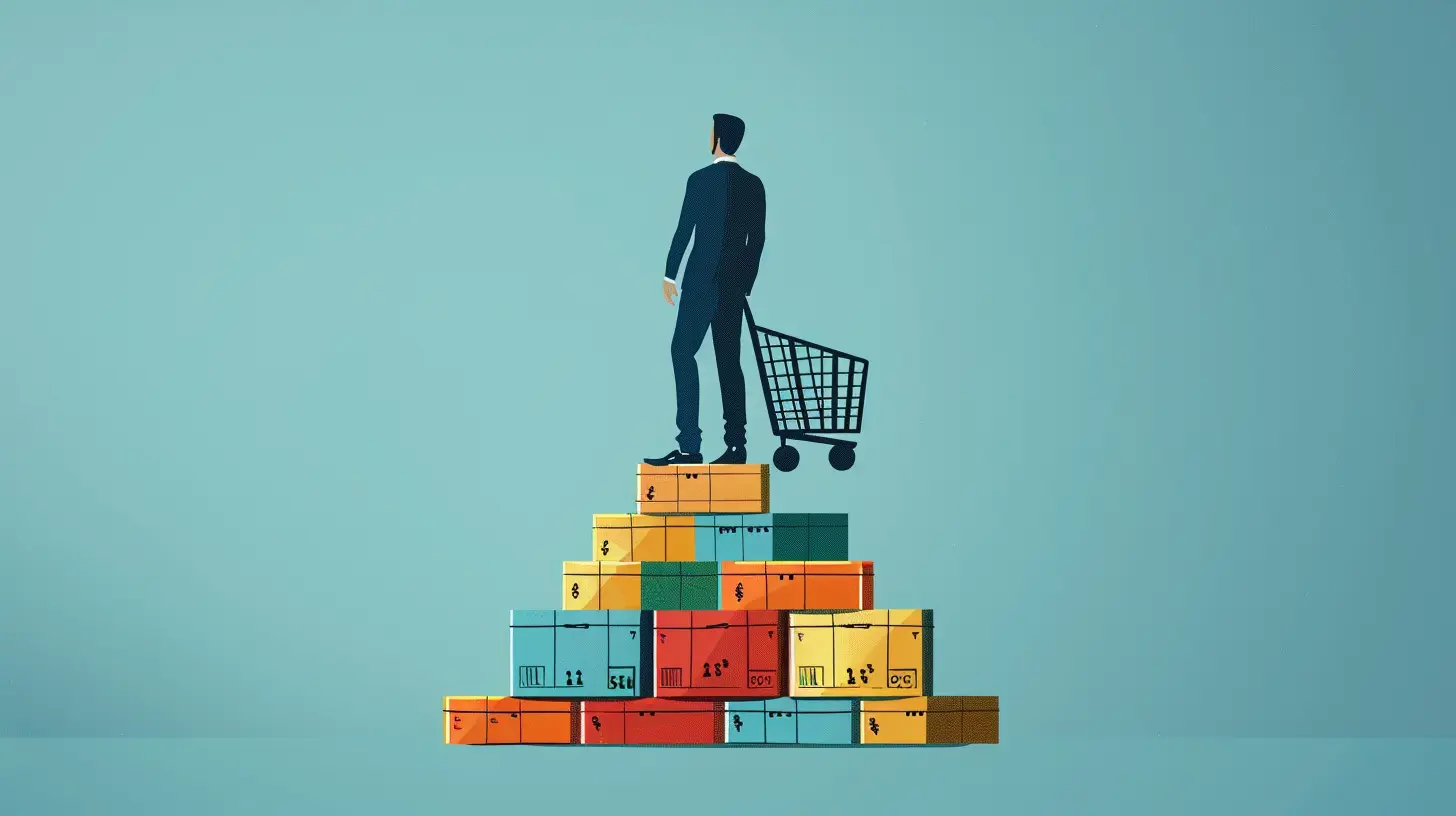How Consumer Demands are Driving Ethical Business Practices
3 June 2025
Let’s be honest; we’re living in a time where the decisions we make as consumers carry more weight than ever before. You've probably noticed it too—everything from the food we eat to the products we use is being scrutinized for its impact on the planet and society. And guess what? Businesses are listening.
Consumer behavior is undergoing a massive shift, and demand for ethical practices is no longer a nice-to-have—it's a must-have. In this blog post, I’m going to break down how our expectations as buyers are reshaping the way businesses operate. So, grab a cup of coffee (ethically sourced, of course), and let’s dive in! 
What Do We Mean by "Ethical Business Practices"?
Before we get into the nitty-gritty, let’s clear something up: what exactly are ethical business practices? Simply put, they’re actions taken by companies to ensure their operations positively impact society, the environment, and their employees.Think of it like a moral compass guiding business decisions. From reducing carbon footprints to paying workers fair wages, “doing the right thing” isn’t just good karma—it’s becoming table stakes in today’s marketplace. 
The Rise of the Conscious Consumer
You’ve probably heard the term “conscious consumer” floating around, right? It’s not just a buzzword. We, as buyers, are increasingly aware of the impact our purchases have on the world.Shopping isn’t just about price tags and brand names anymore. It’s about voting with our wallets. We’re asking questions like:
- Was this product made sustainably?
- Does this company treat its workers fairly?
- How transparent are they about their supply chain?
When companies fail to meet these expectations, they risk more than just losing a sale. In today’s call-out culture, one PR misstep can go viral faster than you can say, "Cancel culture."
Why the Shift?
So, why are we suddenly so invested in ethical everything? Well, a few reasons:1. Access to Information
It’s 2023—everything is Google-able. We have documentaries, social media, and investigative journalism exposing unethical practices daily. Ignorance is no longer bliss.
2. Millennials and Gen Z
These younger generations are driving change like nobody’s business. They value experiences over possessions, and when they do buy, they prioritize purpose over price.
3. Climate Change and Social Justice
Let’s be real—our planet is in trouble, and inequality is rampant. These aren’t minor side issues anymore; they’re front and center. 
How Consumer Demands are Shaping Business Decisions
Alright, let’s get to the good stuff. How exactly are businesses adapting to this new world order? Spoiler: They’re making some significant changes.1. Sustainability Takes Center Stage
If there’s one thing businesses can’t ignore, it’s the growing demand for sustainability. Consumers (that’s you and me) want to know that what we’re buying isn’t trashing the planet.- Eco-Friendly Products: Have you noticed how many brands are now offering biodegradable, recyclable, or carbon-neutral products? It’s no coincidence.
- Sustainable Packaging: Those single-use plastics? They’re so last season. Businesses are getting creative with compostable materials and zero-waste packaging.
And let’s not forget about renewable energy. From solar-powered factories to electric delivery fleets, companies are showing us they can go green too.
2. Transparency Isn’t Optional Anymore
Here’s the thing—if businesses think they can sweep something shady under the rug, they’re in for a rude awakening. Consumers are demanding transparency, and companies that fail to provide it are getting called out left and right.- Supply Chain Disclosures: We want to know where our stuff comes from and that it wasn’t made in sweatshops.
- Ingredient Lists and Certifications: Labels like “Fair Trade,” “Cruelty-Free,” and “Certified Organic” are being scrutinized more than ever.
3. Fair Wages and Ethical Labor Practices
Now, let’s talk people, because ethical practices aren’t just about the environment—they’re about workers too. Consumers are pressuring businesses to ensure their employees (and those in their supply chains) are treated with dignity and respect.- Fair wages? Check.
- Safe working conditions? Double check.
- Diversity and inclusion? A must.
Brands like Patagonia and Ben & Jerry’s are killing it here, showing that treating people right isn’t just feasible—it’s profitable.
4. Purpose-Driven Brands Win Hearts
Here’s a little secret: people love a good story. It’s no longer enough for a company to sell a product. We want to know why they do what they do.Purpose-driven brands—those genuinely committed to making the world better—create loyal customers. Think TOMS with their one-for-one model or Bombas donating socks with every purchase. These brands make us feel good about spending our hard-earned cash.
5. Tech and Innovation Are Leading the Charge
Let’s not forget the tech wizards out there making ethical business practices easier to implement. From AI-powered supply chain transparency tools to blockchain for tracking materials, technology is helping businesses meet consumer demands in ways we couldn’t have imagined a decade ago.
The Challenges Businesses Face
Of course, not everything is rainbows and butterflies. Meeting consumer demands for ethical practices is no easy feat.- Cost: Adopting sustainable and ethical practices often comes with a hefty price tag. Not every business can afford to make the switch overnight.
- Greenwashing: Some brands slap “sustainable” or “eco-friendly” on their products without actually walking the talk. (I’m looking at you, fast fashion.)
- Balancing Profit and Purpose: Let’s face it—businesses exist to make money. Finding the sweet spot between profitability and ethical responsibility is no small task.
Why This Matters
So, why should you care? Because, whether you realize it or not, every single purchase you make is part of a larger ripple effect.When you choose to support ethical companies, you’re sending a message loud and clear: “This is what I value.” And when enough people demand change, businesses have no choice but to adapt or risk becoming irrelevant.
Wrapping It All Up
The world is changing, and honestly? It’s about time. Consumer demands are reshaping the way businesses operate, pushing them to be better—not just for the profits but for people and the planet too.Are we there yet? Not quite. But one thing’s for sure: Together, as conscious consumers, we’re steering the ship toward a brighter, more ethical future.
So, the next time you’re shopping, ask yourself: What kind of world am I supporting with this purchase? Trust me, your choices matter more than you think.
all images in this post were generated using AI tools
Category:
Business EthicsAuthor:

Miley Velez
Discussion
rate this article
3 comments
Jade McTiernan
Embrace the shift! Ethical practices not only satisfy consumers but also inspire lasting business success!
June 14, 2025 at 3:51 AM

Miley Velez
Thank you! Embracing ethical practices is indeed essential for both consumer satisfaction and sustainable success.
Arwen Parker
As consumer awareness rises, businesses are no longer just profit-driven; they’re under pressure to align with ethical standards. Adapting to these demands isn’t just smart—it’s essential for survival in today’s conscientious marketplace.
June 9, 2025 at 2:21 AM

Miley Velez
Absolutely! Consumer awareness is reshaping business practices, making ethical alignment crucial for long-term success.
Beth Edwards
This article highlights a crucial shift in the business landscape, where consumer expectations now prioritize ethical practices. It's refreshing to see companies adapting to this demand, recognizing that integrity and sustainability are not just trends but essential for long-term success. Embracing these values fosters trust and loyalty among consumers.
June 4, 2025 at 3:52 AM

Miley Velez
Thank you for your insightful comment! I completely agree that integrity and sustainability are vital for building trust and ensuring long-term success in today's market.



